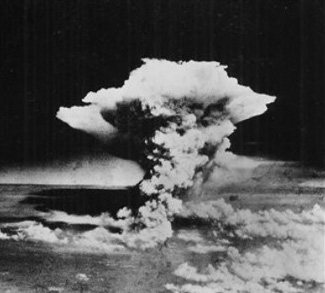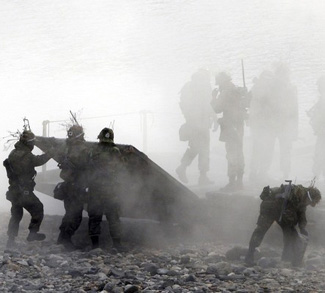Although Russia has been a longstanding patron of the Syrian government, Moscow may soon find that its support for the beleaguered regime is a trap of its own making.
The reemergence of Russian influence in the Middle East is a natural phenomenon rooted in historical precedent. Syria has played a critical role in Russian efforts to curb American power in the region for nearly 40 years. Since Egypt’s Anwar Sadat expelled Soviet advisors in 1972 citing the country’s reluctance to provide Egypt with offensive weapons, Moscow and Damascus have been locked in a marriage of mutual necessity.
During the Yom Kippur War (1973), Hafez al-Assad’s sense of betrayal when Egypt halted its advance on Sinai was only equaled by Moscow’s disappointment at Sadat’s eventual declaration that the “US holds 99% of the cards in the region.”
The principles of Russian foreign policy in the Middle East outlined by Former Soviet Minister of Foreign Affairs Andrei Gromyko (1909-1989) still ring true in today’s post-Soviet context. Gromyko claimed that Moscow’s primary goals in the Middle East were to prevent US dominance in the region and to manage conflict in both Russia’s backyard and the wider peripheral region.
The inability or unwillingness of the Russians to project power and defend their interests in the Middle East has proved to be ephemeral. America’s military hegemony, as demonstrated in Iraq (1991 and 2003), once again finds itself constrained by Russia’s conflicting interests in 2012.
Thirty years after Sadat’s assassination and a year since the fall of his pro-American successor, Hosni Mubarak, it appears as if Sadat was right. Despite Israel’s diplomatic isolation and America’s weak economic position, Washington remains the dominant voice of influence in the Middle East while Israel’s regional military strength remains unchallenged.
This is the context in which Russia’s continual support of Assad’s rule must be viewed.
Assad’s interests remain consistent with Moscow’s objectives under Dmitry Medvedev and Vladimir Putin. Beyond the retention of power and regime survival—Assad’s first priority—the Syrian government has two fundamental objectives: 1) to resist Israeli strategic domination without provoking a hostile response from Jerusalem and, 2) to block Arab-Israeli peace initiatives that run contrary to his regime’s interests—interests that extend well beyond the recovery of the Golan Heights.
And herein lies the dilemma at the core of Assad’s “No War, No Peace” policy. Open war with Israel would immediately result in the regime’s demise. Peace with Israel, as the Assad family knows too well, also threatens their dynasty. After all, the repression of the Syrian people under Assad has been justified by consistently pointing to the “Zionist boogeyman under the bed.” Indeed, prior to the revolt in Syria in March 2011, a self-assured Assad remarked that Syria would remain immune from the Arab Spring because it represented the last bastion of resistance to Zionism.
Perhaps the most significant aspect of the Syrian revolution is that the Syrian people have become increasingly skeptical of regime attempts that link the revolt to Western or Zionist conspiracies. The overt anti-Assad focus of Syrian dissenters serves to highlight the ruthlessness of the Assad regime, its widespread isolation, and its undeniable dependence on Russian and Iranian support.
Russia’s sensitivity in the region is reflected by its ongoing resistance to UN resolutions that do more than censure Syria or place observers on the ground. The innocuous no-fly zone during the Libyan War was—in Russian eyes—a green light for NATO air attacks on Muammar Gaddafi’s ground forces. Provided Assad retains enough composure and control over his forces such that neither Turkey nor Israel are prodded to react and, in turn, provoke a possible NATO retaliation, Damascus has little fear in terms of external intervention.
In this context of power politics that places little emphasis on the domestic affairs of nations, Russia’s steadfast support for Syria should come as no surprise. Continued access to a warm water port in Tartus is a pivotal Russian interest that is meant to counter the US 6th Fleet off of Haifa. However, Moscow still has no real answer to curb closer ties between Azerbaijan and Israel—ties that are meant to accomplish the mutually beneficial task of checking Russia and containing Iran.
Putin’s unacknowledged Achilles Heel, perhaps, is the risk to Russian interests in the Middle East over the long-term. Anti-Russian sentiment is palpable and widespread in Syria. As Russian ships unload weapons and ammunition for Assad’s army and Russian diplomats continue to block UN resolutions, Russian flags are burnt on the streets of Syrian cities. It appears as though Moscow is now trapped in its support for Assad. Assad’s survival maintains core Russian interests. In the event Assad is overthrown, however, it is impossible to project how a successor regime in Damascus could possibly align with Russia and survive.




